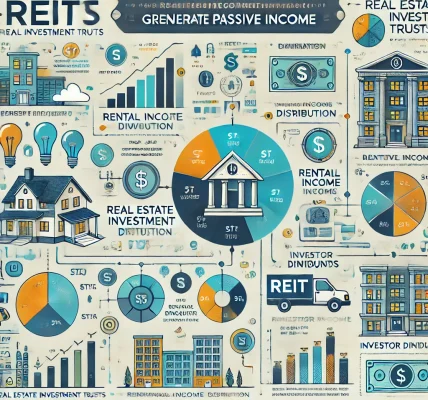Introduction
Real estate has long been a lucrative investment avenue, but traditional property investment often requires substantial capital, extensive management, and market expertise. Enter real estate crowdfunding—a modern, accessible way to invest in real estate with minimal effort. This DIY guide will explore how real estate crowdfunding works, its benefits and risks, legal considerations, and strategies to maximize returns while ensuring compliance.
What is Real Estate Crowdfunding?
Real estate crowdfunding is an investment model that allows individuals to pool their money to fund real estate projects. These projects can range from residential developments to commercial properties. Instead of buying an entire property, investors own fractional shares and earn passive income through rental yields and property appreciation.
How It Works
- Investors Join a Crowdfunding Platform – Online platforms like Fundrise, RealtyMogul, and CrowdStreet connect investors with real estate opportunities.
- Choose an Investment Type – Investors can pick from equity investments (ownership stake in a property) or debt investments (lending money for property financing).
- Fund the Investment – Individuals contribute capital, and once funding goals are met, the project proceeds.
- Earn Returns – Investors receive dividends, rental income, or capital appreciation based on their investment type.
Types of Real Estate Crowdfunding Investments
1. Equity Crowdfunding
- Investors own a percentage of the property.
- Returns come from rental income and appreciation.
- Higher risk but potentially higher long-term rewards.
2. Debt Crowdfunding
- Investors lend money to real estate developers.
- Returns are fixed interest payments over a set period.
- Lower risk but limited upside potential.
Pros and Cons of Real Estate Crowdfunding
Pros:
- Lower Capital Requirement: Unlike direct real estate investments, you can start with as little as $500.
- Diversification: Spread risk by investing in multiple properties across different markets.
- Passive Income: Earn rental income or interest without actively managing properties.
- Accessibility: Online platforms make investing simple, even for beginners.
- No Property Management Hassles: No need to deal with tenants, maintenance, or property upkeep.
Cons:
- Illiquidity: Real estate crowdfunding investments are not easily sold or cashed out.
- Platform Risks: Some crowdfunding platforms may lack transparency or financial stability.
- Limited Control: Investors have no direct say in property management decisions.
- Market Fluctuations: Returns depend on real estate market conditions.
- Regulatory Risks: Legal changes can impact investment structures and tax obligations.
Step-by-Step DIY Guide to Investing in Real Estate Crowdfunding
Step 1: Research Crowdfunding Platforms
- Compare platforms based on reputation, fees, past performance, and property types.
- Check whether the platform is registered with financial regulatory bodies.
Step 2: Understand the Investment Structure
- Decide between equity or debt investments based on risk tolerance and financial goals.
- Review project details, expected returns, and timelines.
Step 3: Assess Risk Factors
- Investigate property locations, developer experience, and market conditions.
- Diversify investments across multiple properties to mitigate risk.
Step 4: Read the Fine Print
- Review contracts, exit strategies, and tax implications before committing funds.
- Understand how profits and losses are distributed among investors.
Step 5: Monitor Investments Regularly
- Track project updates and financial reports provided by the crowdfunding platform.
- Adjust investment strategies as market conditions change.
Legal and Regulatory Considerations
Real estate crowdfunding is subject to various laws and regulations. Investors must ensure compliance to avoid legal risks.
1. SEC Regulations (For U.S. Investors)
- Most crowdfunding platforms operate under SEC guidelines, including Regulation A+, Regulation D, and Regulation CF.
- Some investments are only available to accredited investors (those meeting specific income or net worth requirements).
2. Tax Implications
- Income from real estate crowdfunding is subject to capital gains tax or ordinary income tax.
- Tax treatments vary based on investment type and location.
3. International Considerations
- Investors outside the U.S. should review local laws regarding real estate crowdfunding investments.
- Some countries impose restrictions on cross-border investments.
Maximizing Returns and Reducing Risks
1. Diversify Across Multiple Properties
- Avoid putting all capital into one project; spread investments across different markets and property types.
2. Choose Platforms with Strong Track Records
- Research platform history, investor reviews, and past project performance.
3. Focus on High-Growth Markets
- Invest in areas with rising property values and strong rental demand.
4. Understand Fees and Costs
- Some platforms charge management fees that can reduce returns.
- Compare fee structures before investing.
5. Have a Long-Term Strategy
- Real estate crowdfunding is not a get-rich-quick scheme; plan for long-term growth and passive income.
Case Studies: Real Estate Crowdfunding Success & Challenges
Success Story: A High-Yield Multifamily Property Investment
A group of investors pooled $1 million through a crowdfunding platform to acquire a multifamily apartment complex in Austin, Texas. Over five years, rental income provided steady cash flow, and property appreciation led to a 40% total return on investment.
Challenge: A Failed Commercial Project
A retail development project in a struggling market failed due to economic downturns and mismanagement. Investors faced losses due to slow property sales and high vacancy rates, emphasizing the importance of risk assessment.
Final Thoughts: Is Real Estate Crowdfunding Right for You?
Real estate crowdfunding is an excellent way to earn passive income without the burdens of traditional property ownership. However, investors must conduct thorough research, assess risks, and choose reputable platforms. By following this guide, beginners can confidently explore real estate crowdfunding as a path to financial growth while minimizing legal risks.
FAQs
1. Is real estate crowdfunding safe?
While crowdfunding can be profitable, it carries risks like market downturns, platform failures, and illiquidity. Proper research is crucial.
2. Can I withdraw my investment anytime?
No, real estate crowdfunding investments typically have fixed holding periods ranging from 3 to 10 years.
3. How much money do I need to start investing?
Minimum investment amounts vary by platform, but some allow entry with as little as $500.
4. Are crowdfunding returns guaranteed?
No, returns depend on market performance and project success. There are no guarantees.
5. What happens if the crowdfunding platform goes bankrupt?
Investors may still retain ownership of underlying assets, but legal proceedings could delay fund recoveries.
By following this guide, you can navigate the world of real estate crowdfunding with confidence, making informed decisions to generate passive income safely and effectively. Introduction
Real estate has long been a lucrative investment avenue, but traditional property investment often requires substantial capital, extensive management, and market expertise. Enter real estate crowdfunding—a modern, accessible way to invest in real estate with minimal effort. This DIY guide will explore how real estate crowdfunding works, its benefits and risks, legal considerations, and strategies to maximize returns while ensuring compliance.




